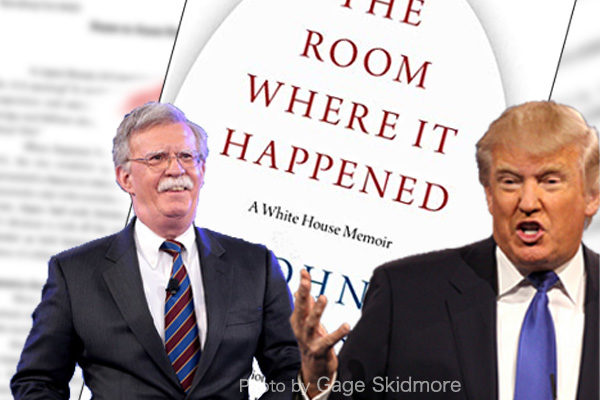U.S. President Donald Trump’s former national security adviser John Bolton, who has authored a book pulling back the curtain on the Trump administration’s foreign policy, told in a recent interview with the Sankei Shimbun newspaper that there is real risk that Trump, unlike previous U.S. presidents, might withdraw U.S. forces from Japan and that Japan should take more seriously his request for an increase in its share of costs for stationing U.S. forces in Japan.
After Bloomberg on June 25 last year reported Trump as musing about ending the Japan-U.S. security treaty, Trump reiterated twice the unfairness of the treaty that requires the United States to defend Japan without obligating Japan to defend the U.S. His complaint came as a big surprise to Japan. It might have been natural for an interviewer to ask Bolton, who was working with Trump until last September, about the president’s real intention regarding the treaty.
U.S. forces could pull out from Japan
Bolton might have been dominantly expected in Japan to say that U.S. forces would never pull out from Japan. In fact, however, he pointed to the risk of Trump withdrawing U.S. forces form Japan.
I have remained alert to most comments from defense experts and feel that not a small number of them have remained silent about Trump’s remarks regarding the Japan-U.S. alliance. This is because the impact of the remarks has been too big. The Japan-U.S. alliance has an absolute value for Japanese conservative opinion leaders. They would lose their position if the ground of their theories regarding the alliance is denied by the supreme U.S. leader.
Unless admitting that they are wrong, they have no choice but to conclude the U.S. president as wrong. Unless they determine Trump as wrong, their theories become unreasonable. Partly because Japanese intellectuals have had a long association with U.S. Democrats and partly because criticism against Trump by the Americans intensifies, impolite criticism in Japan of Trump in both print and visual media has been remarkable. While depending on a foreign country without trying to defend their country on their own, they complain the foreign country as undependable. While failing to know their place, some shamefully assert that what Japan should do in the face of U.S.-China confrontation would be bridging between the two powers.
Redevelop defense policy
Such Japanese trend might have angered Toshihiro Minohara, a Japanese American professor of politics at a graduate school of Kobe University. In a contribution to the Sankei Shimbun newspaper on July 2, he wrote: “There are people who may be comfortable with arguing that Japan should mediate between the United States and China that confront each other… As I have noted earlier, however, diplomatic power of any country failing to secure national security on its own is limited. Even before noting so, I question what a country can do despite its failure to rescue its own citizens abducted by North Korea or those who have been unreasonably arrested and detained by China.” Trump and Bolton might have similar feelings.
Unless Japan redevelops its defense policy on the assumption of U.S. gradual withdrawal from Japan, it would be ignored by any other country.
Tadae Takubo is Vice President, Japan Institute for National Fundamentals and a professor emeritus at Kyorin University.


